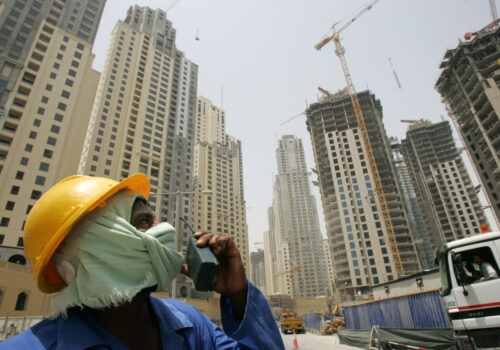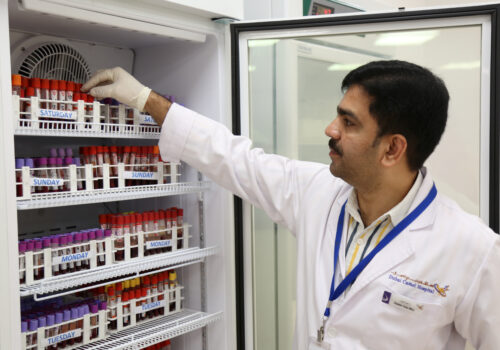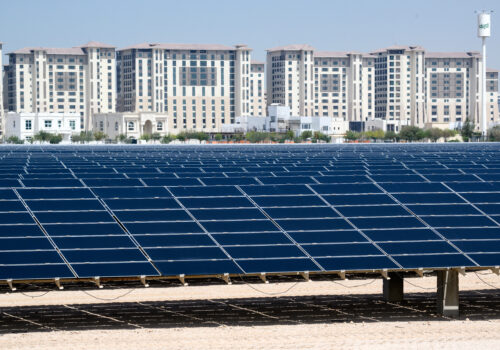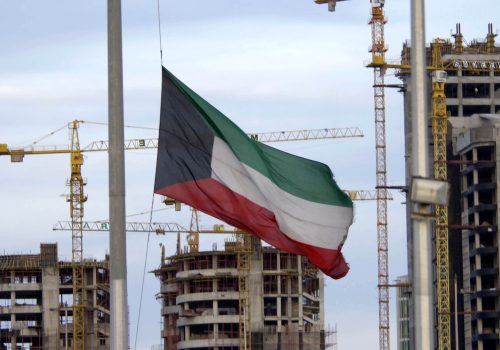The United Arab Emirates (UAE), situated on the Arabian Peninsula, boasts a total land area spanning 83,600 km2, with a coastline stretching 1,318 km along the southeastern portion of the Persian Gulf. The nation’s climate is predominantly hot and humid, characterized by vast expanses of desert covering approximately four fifths of its land area, rendering it a water-scarce and hyper-arid environment.
As of 2020, the UAE’s population stands at an estimated 9.9 million people, with over 85 percent of its inhabitants being immigrants. The nation’s economy hinges largely on its crude oil production and construction sectors, complemented by thriving trade and real estate services.
However, the UAE faces significant vulnerabilities to the impacts of climate change. Foreseeable consequences include extreme heat, storm surges, sea level rise, water stress, dust and sandstorms, and desertification. Even slight deviations in weather patterns could wield profound implications for the country’s economic, environmental, and social well-being.
Notably, key areas and sectors set to bear the brunt of climate-induced changes encompass construction and infrastructure, energy, public health, and agriculture and food security, which confronts multifaceted challenges due to shifting climatic conditions, including temperature fluctuations and altered precipitation patterns.
Rising sea levels particularly threatens the nation’s vital infrastructures, including desalination and power facilities. Coastal habitats along the Persian Gulf and the Gulf of Oman are also at risk.
Mitigating the effects of climate change is imperative for safeguarding the UAE’s future sustainability and resilience. In July 2023, the UAE updated its third nationally determined contribution (NDC), aiming to curb carbon emissions by 40 percent by 2030, up from its previous 31 percent target.
The UAE also played a pivotal role in rallying the global community to combat climate change by hosting the 28th UN Climate Conference of the Parties (COP28 UAE) at Dubai Expo City in November 2023. COP28 culminated in the UAE Consensus, a milestone agreement signaling a commitment to transition away from fossil fuels.
Key environment indicators

Construction & Infrastructure
Climate change presents profound challenges to construction and infrastructure in the UAE, posing risks to the integrity, resilience, and functionality of critical infrastructure assets. For instance, rising temperatures exacerbate the degradation of construction materials and infrastructure components, leading to increased maintenance costs and shortened asset lifespans.
According to the UAE’s National Climate Change Adaptation Program, extreme heat events are projected to become more frequent and intense, further stressing infrastructure systems. On the other hand, the UAE’s extensive coastline makes it particularly vulnerable to sea level rise. Data from the UAE Ministry of Climate Change and Environment indicates that sea levels in the Persian Gulf are projected to rise by up to 0.5 meters by 2050, threatening coastal infrastructure such as ports, airports, and coastal roads. The State of the Environment Report highlights the urgency of adapting coastal infrastructure to mitigate the risks of inundation and erosion. Climate change also contributes to the increased frequency and intensity of sandstorms and dust events in the UAE. These phenomena pose significant challenges to infrastructure, including damage to buildings, roads, and utility networks.
According to technical reports from the UAE’s Ministry of Infrastructure and Development, sandstorms and dust events are expected to become more frequent, necessitating enhanced infrastructure resilience measures. Additionally, changing precipitation patterns and water scarcity exacerbate challenges related to water supply and management for construction projects. The UAE’s Ministry of Water and Agriculture reports that water scarcity is a growing concern, affecting construction activities such as concrete production and dust suppression. Sustainable water management practices, including water recycling and reuse, are increasingly being integrated into construction projects to mitigate water-related risks. Technical reports from the UAE’s Ministry of Energy highlight the need for energy-efficient design standards and renewable energy integration to mitigate the environmental footprint of infrastructure projects and reduce reliance on fossil fuels.

Agriculture & Food Security
Climate change presents significant challenges to agriculture and food security in the UAE, posing risks to crop yields, water availability, and overall agricultural productivity. According to data from the UAE Ministry of Climate Change and Environment, rising temperatures and changing precipitation patterns are altering growing conditions and exacerbating water scarcity in the region.
The UAE’s State of the Environment Report highlights the impact of climate change on agricultural production, with projections indicating a decline in crop yields and agricultural output due to heat stress and water limitations. For example, data from the Food and Agriculture Organization (FAO) shows that the UAE’s wheat production has declined by approximately 30 percent over the past decade, primarily attributed to water scarcity and changing climate conditions. Furthermore, climate change is affecting the availability and quality of water resources essential for irrigation and crop cultivation. The UAE’s Ministry of Energy and Infrastructure reports that decreasing rainfall and increasing temperatures are leading to declining groundwater levels and salinization of irrigation water, further limiting agricultural productivity.
In addition to direct impacts on crop production, climate change is also contributing to shifts in pest and disease dynamics, posing additional challenges to agricultural sustainability. The UAE’s Ministry of Climate Change and Environment highlights the emergence of new pest species and the spread of crop diseases, resulting in crop losses and reduced yields. The UAE’s National Climate Change Adaptation Program emphasizes the importance of adopting climate-resilient agricultural practices and technologies to mitigate the impacts of climate change on food security. Strategies such as precision agriculture, drought-resistant crop varieties, and efficient irrigation techniques are being promoted to enhance agricultural resilience and ensure food security in the face of changing climate conditions.

Health & Wellbeing
Climate change poses multifaceted risks to public health in the UAE, exacerbating existing health challenges and introducing new threats to the population. According to the UAE Ministry of Climate Change and Environment, rising temperatures and changing precipitation patterns are contributing to the proliferation of vector-borne diseases, such as dengue fever and malaria, previously uncommon in the region.
The UAE’s National Climate Change Adaptation Program highlights the impact of extreme heat events on public health, with heat-related illnesses and heatstroke becoming increasingly prevalent during the summer months. According to the World Health Organization (WHO), the frequency and intensity of heatwaves in the UAE have been on the rise, leading to a higher incidence of heat-related illnesses and hospital admissions. The UAE’s preliminary National Strategy and Action Plan for Environmental Health also indicates a potential rise in mortality and morbidity due to changes in climate.
Furthermore, climate change is exacerbating air quality issues in urban areas, with higher temperatures and increased humidity levels contributing to the formation of ground-level ozone and particulate matter. The UAE’s State of the Environment Report highlights the correlation between poor air quality and respiratory diseases, such as asthma and chronic obstructive pulmonary disease (COPD), which pose significant health risks to vulnerable populations, including children, the elderly, and individuals with pre-existing health conditions. In addition to direct health impacts, climate change is also affecting water quality and availability in the UAE, with changes in precipitation patterns and rising temperatures leading to water scarcity and contamination of freshwater sources.
The UAE’s Ministry of Health and Prevention reports an increase in waterborne diseases, such as gastroenteritis and waterborne infections, due to inadequate access to safe drinking water and poor sanitation infrastructure. To address these challenges, the UAE has implemented various adaptation and mitigation measures to protect public health from the impacts of climate change. These include heatwave early warning systems, air quality monitoring programs, and investments in water infrastructure and sanitation facilities. However, continued efforts and international cooperation are essential to effectively address the complex and interconnected health challenges posed by climate change in the UAE.

Energy
Climate change poses significant challenges to the oil sector in the United Arab Emirates (UAE), a nation heavily reliant on hydrocarbon activities for economic prosperity. Rising temperatures, shifting precipitation patterns, and extreme weather events are disrupting traditional oil extraction methods and threatening infrastructure integrity, thereby impacting oil production and revenues. According to data from the UAE Ministry of Energy, the country’s oil production has experienced fluctuations due to climate-related disruptions.
Extreme heatwaves, exacerbated by climate change, have led to operational challenges in oil fields, resulting in reduced output. Additionally, increased frequency and intensity of sandstorms have hampered drilling operations and infrastructure maintenance, further impacting oil production rates. Moreover, rising sea levels pose a significant threat to the UAE’s coastal oil facilities and shipping routes. As sea levels continue to rise, the risk of saltwater intrusion into oil reservoirs and coastal infrastructure increases, leading to corrosion and structural damage.
According to the Intergovernmental Panel on Climate Change (IPCC), sea levels in the Persian Gulf are projected to rise by an average of 0.5 to 1.2 meters by 2050, placing critical oil assets at risk. International climate policies are also shifting market dynamics. As global efforts to mitigate climate change intensify, demand for fossil fuels, including oil, is expected to decline. According to projections from the International Energy Agency (IEA), global oil demand is expected to plateau and eventually decline in the coming decades, posing long-term challenges to oil-exporting nations like the UAE. To address these challenges, the UAE has initiated strategic efforts to diversify its economy and reduce dependence on oil revenues.
The UAE Vision 2050 outlines structural plans to transition towards a knowledge-based economy driven by innovation and sustainability. Renewable energy initiatives, such as the Mohammed bin Rashid Al Maktoum Solar Park, underscore the country’s commitment to clean energy transition and climate resilience. Recent projections suggest that implementing the 2050 Strategies could nearly double the UAE’s non-hydrocarbon GDP growth, stimulating economic diversification and resilience. To date, the UAE has committed to investing over $160 billion in renewable energy projects by 2050, aiming to generate 50 percent of its energy from clean sources.






